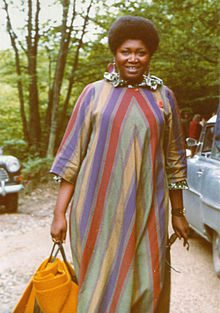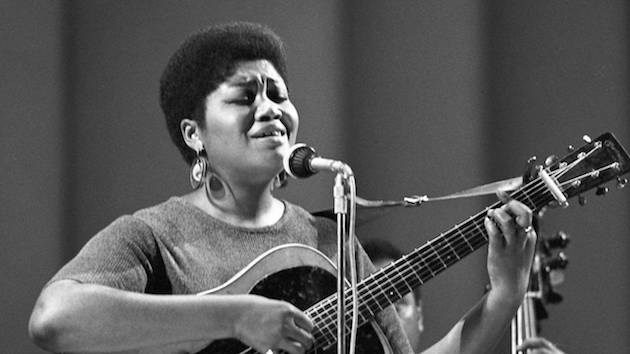
Folk music, a staple of the earliest African musical traditions and the blueprint for a vast majority of modern music, has single handedly produced some of the greatest pioneers, artists, and civil activists.
Odetta Holmes (December 31, 1930-December 2, 2008), known also as Odetta and “The Voice of the Civil Rights Movement”, began drawing her attention to folk music around the year 1950. Being raised in an era of great racial segregation, Odetta began to dedicate a great deal, if not all, of her talents to fueling the Civil Rights Movement. Because folk music was founded on the principles of unity and strength amongst the African people, it provided the ideal soundtrack for such a racially pivotal movement.
In the year 1963, Odetta Holmes sang at the March on Washington ushered by Dr. Martin Luther King Jr. For about 5 decades, Odetta contributed her soulful voice and talents in folk music to social change and civil rights. No matter how many times the cruelties of the world tried to silence her Odetta found great power in her song and refused to be silenced. The folk singer once stated “You’re walking down life’s road, society’s foot is on your throat, every which way you turn you can’t get from under that foot. And you reach a fork in the road you can either lie down and die, or insist upon your life”.
Using the methods on which folk music was founded, Odetta rightfully earned the title of “The Voice of the Civil Rights Movement” by helping to restore not only hope within many African Americans but their confidence as well.


